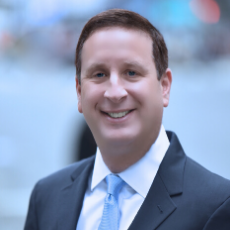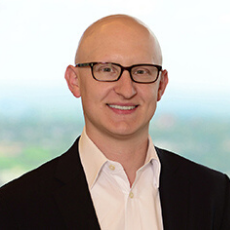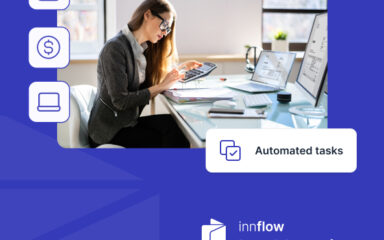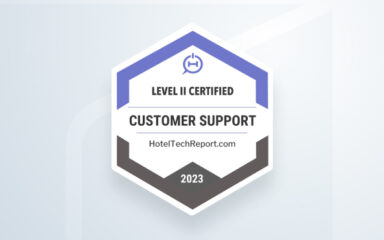Most hoteliers have been through the process of obtaining a loan—but do they know how to optimize financial statements for a lender’s needs? The largest obstacle in the lending process is often a lack of proper organization with a hotel’s financials. How sponsors prepare their reports can influence the process, accelerate the underwriting, and occasionally improve the terms of the loan.
So what are the expectations lenders have for hoteliers in the lending process? How can hoteliers optimize their financials for a lender? How can a hotelier increase the odds of getting favorable terms?
Inn-Flow sat down with two financial experts in hospitality financing to answer these questions and get their insight into the lending process.

Peter Berk is the President of PMZ Realty Capital, LLC, a real estate investment banking firm that centers their business around advisory services. On average, PMZ conducts $800 million of hotel financing a year. Although headquartered in New York, most of their business comes from the Southeast and Midwest. Berk has specialized in hotel lending since the mid-90s and co-founded PMZ in 2003.
David Elgart is a Managing Director with Benefit Street Partners, a wholly owned subsidiary of Franklin Resources, Inc. BSP is a credit-focused alternative asset management firm with over $27 billion in assets managed. Elgart focuses on loan origination, acquisition, and refinancing and is heavily involved in analyzing the underwriting for hospitality loans.

Throughout our conversations, Berk and Elgart were aligned on the overall advice for hoteliers that centered around two themes:
- Operator credibility is critical in finding a lender
- Organization is key to financial preparedness
Credibility and Financial Preparedness
To attract an advisor or lender, borrowers must present financial statements that are consistent and complete. Berk and Elgart expressed that their businesses won’t take on disorganized sponsors.
We asked Elgart to share the meaning of financial preparedness in the context of lending.
“I would say it’s somebody who understands what I need as a lender to analyze the property,” Elgart explained, “but I’m also evaluating who the sponsorship is—their network, their liquidity, what other real estate they own. So everything that just tells me that this is somebody I want to be lending money to.”
Not only is it important to have all your information organized, but it also has to make sense. The condition of the records reflects the sophistication level of an operator, slows or accelerates the interpretation of hotel performance, and can influence a lender’s confidence to provide financing.
“It’s kinda like you never get a second chance to make a good first impression,” explained Berk. “To have well-organized financials that make sense, that the lender can understand and what the appraiser can understand helps a borrower get a better execution and provides credibility.”
What to Prepare
At the start of the entire process, hoteliers will receive a list of the financial documents required by their adviser and/or lender. Each item plays a supporting role in the evaluation and underwriting for a loan. Berk and Elgart champion these five reports above the rest.
- TTM Operating Statement
- Cash Flow
- Forecast (Pro forma)
- STR Report
- Historicals
“I like the Balance Sheet,” Elgart stated, “but at the end of the day with underwriting, the most important things are Cash Flows and the Operating Statements. The Cash Flow and the Trailing Twelve on a monthly basis is really what we look at.”
Cash Flow Statements tell the story of a business. A lender will understand the history of a business from the evaluation of expenses. The Trailing Twelve provides the necessary context to understand where the money goes, but lenders like to know how their money will affect the business in the future. To answer this important set of questions, borrowers need to provide a Forecast.
Elgart explained the expectations of a Forecast as, “Basically at least 3 years of going forward Cash Flows including Occupancy, ADR and RevPAR; revenue expenses on a percentage basis, PAR basis and POR basis… I’ll want to see a transition to something which will definitely require a Forecast.”
When a lender recognizes a consistent performance, they gain confidence that the sponsor will be able to pay them back reliably. Three years of projected metrics should be firmly based on existing performance records.
“The big bogey for Pro Forma,” Berk explained, “is looking at the hotel and the penetration and the STR Report for how the hotel is doing and how it’s going to be doing in the future. If you’re predicting something that’s totally not in line with how the hotel has performed in the past, that’s going to be a hard sell.”
Historicals are what lenders use to validate what is reflected in the STR Report or Operating Statement—especially when there is conflicting information or amounts that differ from year to year. Statements like monthly utility bills, franchise paperwork, and evidence of major life events are statements that lenders depend on to answer their questions during analysis.
How to Fast-Track Your Request
With these financials together, you will have created a powerful set of documentation that any lender would want. There is one additional component that polishes off financial statements. To accelerate the lending process, it is best if financial reports are USALI-compliant.
“The USALI standard is very important,” Berk explained. “[Lenders] won’t close unless they’re in that format. When lenders have to transform the statements it usually presents all kinds of questions in terms of what expense category things go in. It just delays the process.”
According to our experts, any time a hotelier recognizes a need for funding, no matter the immediacy, it will usually take between 30-60 days to close a deal. Each time a lender has a question, there is a process of bringing the lender, sponsor, and lawyers together to get those questions answered.
“There’s a phrase in this industry and it’s time kills all deals,” Elgart shared. “ You never know what’s gonna happen in the world. It’s in a borrower’s best interest to close a loan as quick as possible… You want to sign a deal and sprint to the close.”
Any delay in the process is costly, and there is one method that is proven to help smooth out many of the delays in the lending process – proper hotel accounting software.
The Right Software Can Help
The application an operator uses to perform their accounting will have a significant impact on the lending process overall.
“I don’t want to get somebody handwriting numbers on a piece of paper and sending it over,” Elgart joked. “I’d like to have some sort of computer-driven software that’s a plug and play situation where you plug in the numbers like Revenue and Occupancy Rate and ADR to create reports.”
Only hotel-specific accounting software can provide industry-standard metrics. The best accounting solutions can create the reports Elgart refers to, and there are numerous other benefits including:
- Integrate Accounting with PMS for accurate financials
- Run industry reports with forecasts
- USALI 11th edition compliant
- Easily export into an Excel format
- Document storage (historicals)
Berk wanted to share a piece of advice for every hotelier. He said, “We always recommend hotel accounting software. There are a couple of big brands out there, including Inn-Flow, and I always suggest that owners use them. It’s economical, and in the long run, they’ll end up saving money and having more lender credibility by using a hotel-specific software.”



